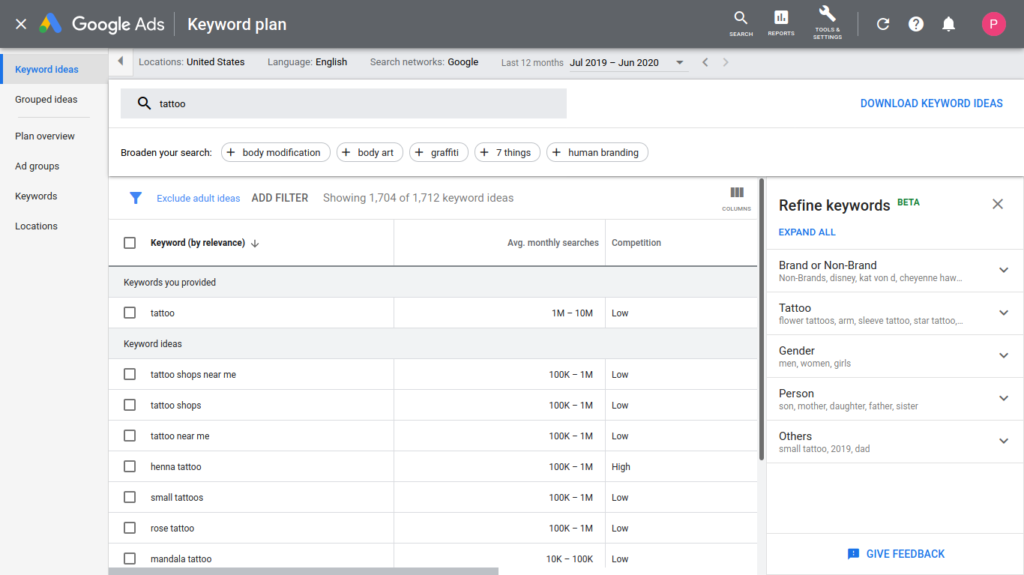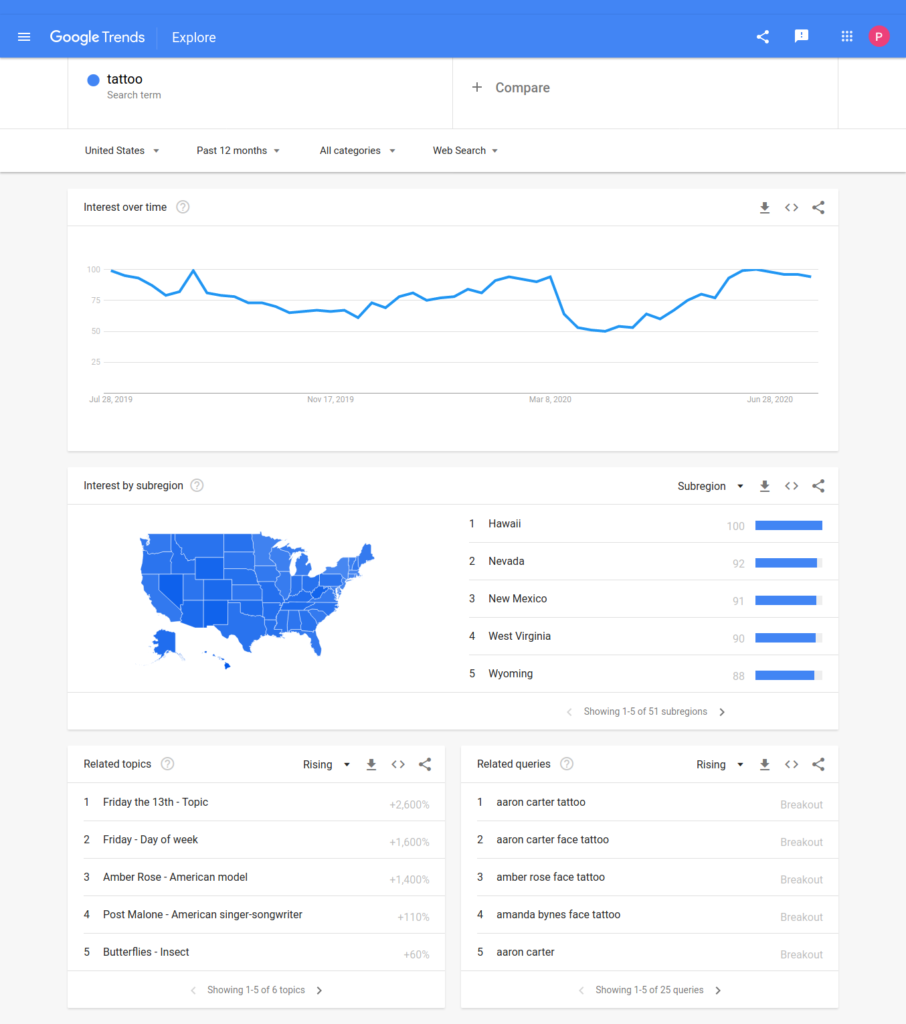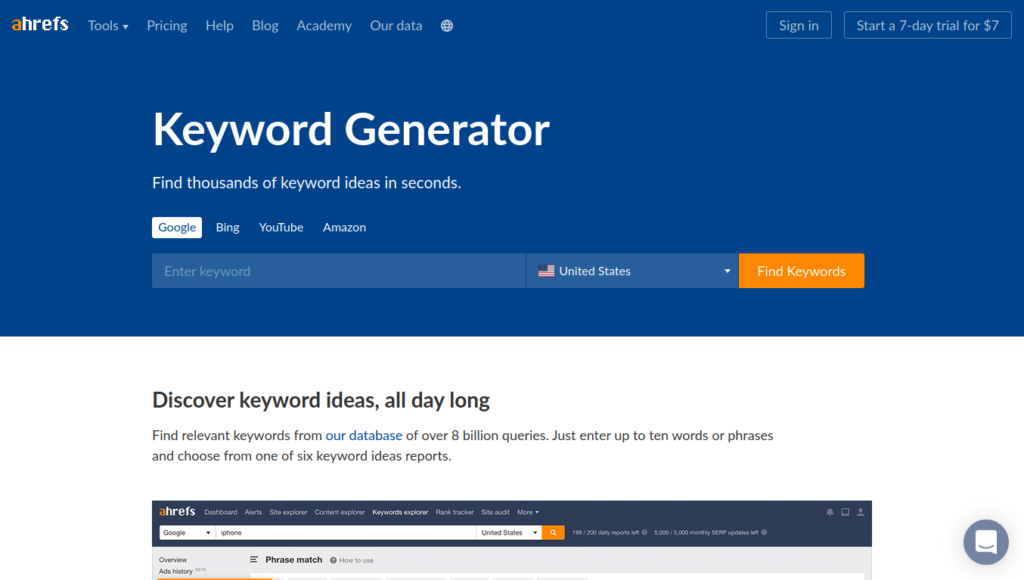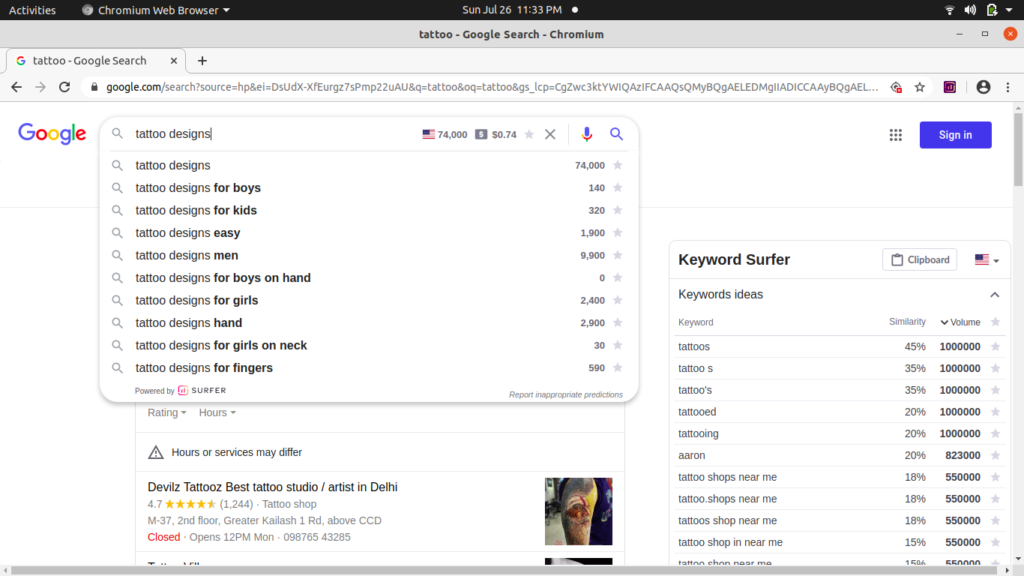In the last article, we discussed about how to plan and prepare for blogging. Now, it’s time to take the next step and get started with blogging.
Once you have the blueprint for your blog, don’t start you blog yet. Instead, you should spend some more time on finalising the blog niche. Keyword research is integral to selecting the right blog niche.
Selecting a Topic for Blogging
When you are looking to start a blog, you should pick a blog niche based on the following:
- Your education and accumulated knowledge
- Your work experience and trade expertise
- Your passion or hobby that you pursue
- Market demand and income potential
Pick an Evergreen Niche
When you are looking to take up blogging seriously as a side hustle or occupation, pick a topic that’s going to stay relevant for years to come.
Evergreen niches are better as any content that you generate will remain useful for years to come. In contrast, content around ephemeral topics have a short lifespan and will become obsolete after some time – a day, a week, a month or a year.
An example of a topic with very short shelf life is news and related content. News commentary blogs will need to be updated every day or so. News become stale the next day or in a few days. To generate revenue, your news articles and opinion pieces have to draw a large number of readers within their short lifespan.
Compare this with an evergreen niche such as craft or cooking. These niches are not time-sensitive. If you generate content around these topics today, it will stay relevant even after a decade. That’s not to say that the content will stay relevant forever. Evergreen niches tend to have a shelf life of decades.
Of course, you can choose a non-evergreen niche as long as you know what you are doing.
Demand for Your Niche

No business can succeed without demand from customers. We need to validate the demand for the blog that we are planning.
Big corporates analyse the market demand and potential revenue before launching a new product. Consider your blog as a product and emulate what multinational companies do.
Check if there is enough demand for the content you are going to generate.
Create a list of 10-50 main “keywords” or “topics” around which you are going to create content. Use the list of keywords to analyse if your blog already has enough prospective readers / customers.
A quick Google search can give you a basic idea. See if there are advertisers and products in your niche? More ads (companies) showing up on the search page means the niche has serious money in it. Are there other blogs and websites?
Keyword Research
Keyword research involves checking the average search volume for your keyword, check for competition from other websites for ranking, analyse advertiser interest and ad spends, and discover keywords.
What is the search volume for keywords on Google? When people are looking for answers, they head over to Google, Bing and other search engines to find the content. You need to conduct keyword research to understand the search volumes.
Keyword research is a whole subject in itself, but we will limit ourselves to the basics for now.
Google Keyword Planner

A feature of Google Ads, it gives you access to average search volume data. You can also use it to discover related keywords. Of late, Google Keyword Planner does not give you the exact search numbers. You only get to see a broad range. However, it does give you a rough understanding of the search volume.
Note: Google Keywords Planner is 100% free, but you need to set up Google Ads with your Google account. To start, go here. Click “Go to Keyword Planner.”
When you activate your Google Ads account, it will run you through the ad campaign creation process. You can create a campaign based on your niche, without adding any billing method or running ads.
Alternatively, skip creating ad campaign altogether. When you see the “What’s your main advertising goal” screen, don’t choose any of the three options. Hit the small “Experienced with Google Ads?” link below. On the next screen, click on the “Create an account without a campaign” link. (Make sure to access the Google Ads site using a laptop / desktop with big resolution screen.)
Once you are inside Google Ads, you can access Keyword Planner under the “Tools & Settings” link in the top menu bar. If you cannot find it there, and hit “Switch to expert mode” setting for accessing all the tools, including Keyword Planner.
Google Trends
Google Keyword Planner gives you an average of search volumes. Google Trends breaks it down into real search trend graphs. It can help you discover popular search keywords globally as well as in other geographies.

You get to explore what people are searching for, and whether the search is growing or declining. Google Trends does not give you search volume numbers.
Ahrefs Keyword Tool

As an alternative to Google Keyword Tool, Ahrefs Keyword Generator tool gives you free access to keywords list along with monthly search volumes by country.
Enter the main keyword and select the country, and it gives you top 100 keywords. You can search for Google, Bing, Youtube and Amazon. It also shows question-type searches. However, only paid users get the full list of keywords and additional data, including keyword difficulty.
Keyword Surfer

Keyword Surfer is a free Google Chrome browser extension that shows estimated global and monthly search volumes for search queries made on Google website(s). Install Google Chrome browser if you don’t have it on your computer, go to extensions and install it.
Answer the Public: Not exactly for blog niche validation. If you run out of ideas, Answerthepublic.com can help you find questions that people are looking for on the Internet. Generate content around the same.
As a thumb rule, niches with higher search volumes are better. Any niche with a minimum of 100,000 search volume across primary keywords is worth considering.
However, don’t pick your niche just based on high search volume. Low search volume but high commercial intent can make a niche lucrative. You need a niche that generates money to adequately compensate you for all the hard work.
Commercial Viability of the Niche
Based on whether the search keyword(s) reflects the intent to purchase a product or service, blogging niches can be broadly categorized into two types:
a) Informational niches: In the first type of niche, people aren’t really looking to buy. Instead, they are looking for information. When you operate in this niche, your blog visitors will generally be in the learning mode.
You cannot sell products to people seeking knowledge without any purchase intent. Hence, you will have to rely on advertising and other creative revenue streams. Any blog that depends on advertising must have a substantial traffic. In general, advertising revenue is $1-10 per 1,000 visitors.
b) Commercial niches: Where people are actively looking to buy products and services, it is easier to make money even with low traffic. For instance, a product review blog has high chances of earning money in affiliate commissions. Blogs in such niches can easily earn $100 per 1000 visitors through affiliate marketing and other streams.
Search for the primary keywords on Google. Are there businesses advertising in search? Can you find products in search results? Are there plenty of businesses and products in your niche? Can you find affiliate programmes for products / services in your blog niche? Are there thousands of websites listed in search results? Can you find successful blogs in your niche? If yes, you might have a good niche.
Quite often your will come across a niche that presents a combination of both informational and buyer search queries.
Some bloggers are able to monetize their blogs even in niches with little commercial intent. The common strategies are selling e-books, online courses and website memberships. Can you manage something like this in your blog niche too?
Best Niches for Money Blogging
Still not sure which niche to pick? When you plan to start a blog for extra dough, you need a niche with lots of commercial intent among people.
Affiliate marketing is most profitable way for monetizing websites and blogs. Here’s a ready reckoner of the niches with chance of making a lot of money.
- Hobby Niches – Photography, Travel, Music, Sports, Casino
- Money Niches – Insurance, Debt Settlement, Bitcoin, Investing, Credit Card, Mortgage
- Health and Fitness Niches – Fitness, Yoga, Organic, Nutrition, Vegan, Weight Loss, Home Remedies
- Lifestyle Niches – Luxury, Travel, Dating, Fashion, Jewelry
- Home & Family Niches – Baby Products, Dogs, Cats, Gardening, Landscaping, Pool
- Technology Niches – Web Hosting, WordPress, VPN, Gaming, Software
- Alternative Niches – CBD, Marijuana, Essential Oils, Herbal
Use the list above as a starting point for your blogging niche discovery.
Conclusion
Select an evergreen niche for your blog based on search volume and revenue potential. Get a rough estimate of revenue that you can generate per 1000 visitors, depending on whether you will rely on advertising or sell product. Move on to the next step of starting a blog when you find the right niche.
